Key (online version)
|
|
1a |
| Wing with brown apical spot [Fig. 103]. |
|
2 |
| b |
| Wing entirely hyaline to brown, but without apical spot. |
|
4 |
| |
|
2a |
| Eye at least 1.4 times (usually 1.5-1.55) as high as long[Fig. 105]. Frons wider than long or at most as long as wide, deeply pitted[Fig. 106]. Larger flies, wing length 4.5-6.5 mm. |
|
3 |
| b |
| Eye round, less than 1.3 (1.2-1.25) as high as long [Fig. 104]. Frons longer than wide, inconspicuously dotted. Smaller flies, wing length less than 4.5 (usually 2.5-3.5) mm. |
| U. salonikiensis Hennig |
|
|
| |
|
3a |
| Halter yellow. |
| U. apicalis Meigen |
|
|
| b |
| Halter black. |
| U. megacephala Loew |
|
|
| |
|
4a |
| Side of frons with triangular white microtrichose area[Fig. 107]. At least wing base (cell bc) brown. |
|
5 |
| b |
| Frons sides shining, at most eye narrowly bordered with whitish microtrichose areas. Wing variable. |
|
6 |
| |
|
5a |
| Mesonotum densely shagreened, almost matt [Fig. 111]. Wing at anterior margin (including cell c) widely brown [Fig. 112]. Frons in profile straight or slightly convex, orbital plate and gena moderately or short setose (longest setae shorter than antenna); parafacialium and face black. |
| U. atrata Loew |
|
|
| b |
| Mesonotum shining black or finely shagreened. Wing hyaline, except cell bc, base of cell c and stigma usually brown [Fig. 113]. Frons in profile usually concave, orbital plate and gena long setose (longest setae longer than antenna); parafacialium and face reddish yellow[Fig. 107]. |
| U. ruficeps Becker |
|
|
| |
|
6a |
| Tarsi entirely black. Face, gena and most of frons dark brown to black. Eye less than 1.3 (1.1-1.2) times as high as long. |
| U. omani Steyskal |
|
|
| b |
| Mid- and hindtarsi at least partly yellowish to reddish. Other characters variable. |
|
7 |
| |
|
7a |
| Anterior part of head (frons above lunule, sometimes face and parafacialium) reddish; eye round (less than 1.3 times as high as long). |
|
8 |
| b |
| Anterior part of head mainly black; eye oval (more than 1.3 times as high as long). |
|
9 |
| |
|
8a |
| Frons satin subshining and smooth in the middle, dotted laterally [Fig. 108]; pterostigma and veins brownish; mesonotum densely shagreened, almost matt. Male hindfemur unmodified, as wide as midfemur. |
| U. facialis Hendel |
|
|
| b |
| Frons shining and pitted over whole anterior half [Fig. 109]; pterostigma and veins hyaline, if veins darkened, then wing uniformly brownish and mesonotum shining. Male hindfemur swollen in distal part [Fig. 110]. |
| U. wadicola Steyskal |
|
|
| |
|
9a |
| Wing brownish grey except basal one-quarter (fig.). Apical portion of distiphallus ("glans") with a few blunt sclerotized projections, but without claw-like or rasper-like structures (fig. ). |
| U. nigripennis Loew |
|
|
| b |
| Wing uniformly yellowish or hyaline (figs ). Apical portion of distiphallus ("glans") either with sharply pointed, claw-like projections or rasper-like structures (fig. ) |
|
10 |
| |
|
10a |
Abdominal tergites subshining, shagreened.
|
| U. semiopaca Loew |
|
|
| b |
Abdominal tergites smooth, shining.
|
|
11 |
| |
|
11a |
| Wing with yellowish tinge (figs ). Apical portion of distiphallus with blunt sclerotized projections and rasper-like structures (fig. ). |
| U. erythrophthalma Meigen |
|
|
| b |
| Wing hyaline, without yellowish tinge (figs ). Apical portion of distiphallus with sharply pointed, claw-like projections and less distinguishable rasper-like structures (fig. ). |
| U. albidipennis Loew |
|
|
| |
| Images |
 |
| Figure 103. Ulidia apicalis Meigen (after Hennig 1940, with changes) |
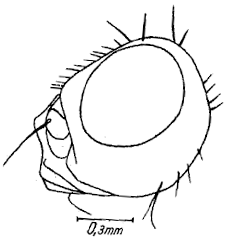 |
| Figure 104. Ulidia salonikiensis Hennig (holotype: redrawn from Hennig 1940, with changes) |
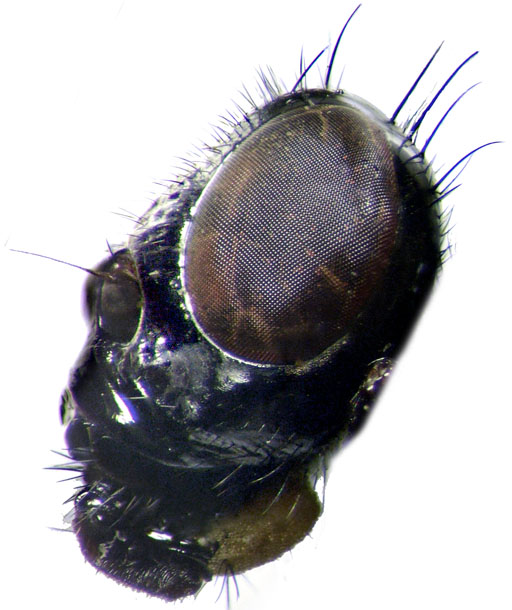 |
| Figure 105. Ulidia apicalis Meigen: Italy (SIZK): head left. |
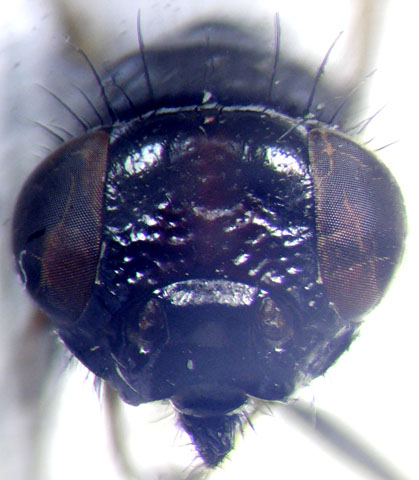 |
| Figure 106. Ulidia apicalis Meigen: Italy (SIZK): frons. |
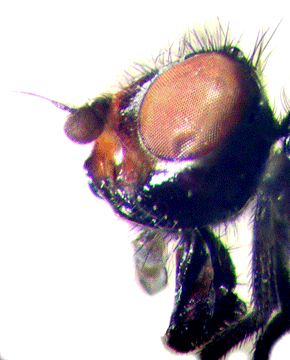 |
| Figure 107. Ulidia facialis Becker - Kazakhstan: Karatau Mts. (SIZK): head left. |
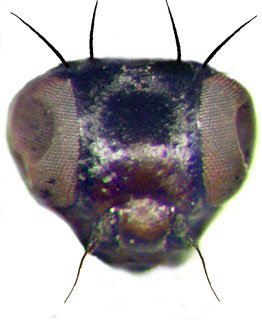 |
| Figure 108. Ulidia facialis Hendel: frons; Israel (SIZK) |
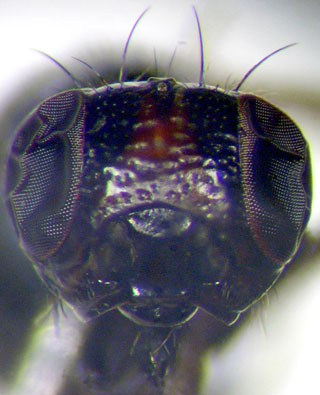 |
| Figure 109. Ulidia sp. cf. wadicola - Greece, N Kilkis, Fanos-Skra, female (SIZK) |
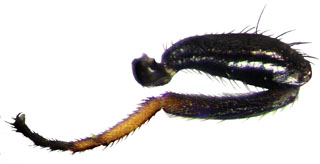 |
| Figure 110. Ulidia wadicola Steyskal: hindleg, male; Israel : Mashabbe Sade (Freidberg leg.) (SIZK) |
![[No image caption given.]](../../infusions/keys/figures/9_atrata_Metsovo_mesonotum_s.jpg) |
| Figure 111. [No image caption given.] |
![[No image caption given.]](../../infusions/keys/figures/9_atrata_Metsovo_wing_ed_s.jpg) |
| Figure 112. [No image caption given.] |
![[No image caption given.]](../../infusions/keys/figures/9_Ulidia ruficeps male total left Boom valley.jpg) |
| Figure 113. [No image caption given.] |








![[No image caption given.]](../../infusions/keys/figures/9_atrata_Metsovo_mesonotum_s.jpg)
![[No image caption given.]](../../infusions/keys/figures/9_atrata_Metsovo_wing_ed_s.jpg)
![[No image caption given.]](../../infusions/keys/figures/9_Ulidia ruficeps male total left Boom valley.jpg)








![[No image caption given.]](../../infusions/keys/figures/9_atrata_Metsovo_mesonotum_s.jpg)
![[No image caption given.]](../../infusions/keys/figures/9_atrata_Metsovo_wing_ed_s.jpg)
![[No image caption given.]](../../infusions/keys/figures/9_Ulidia ruficeps male total left Boom valley.jpg)